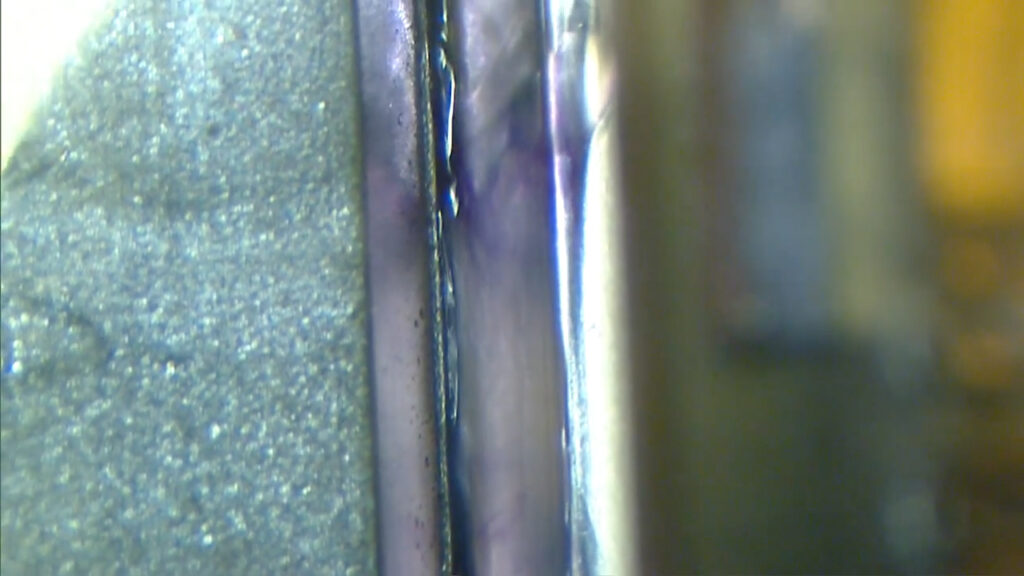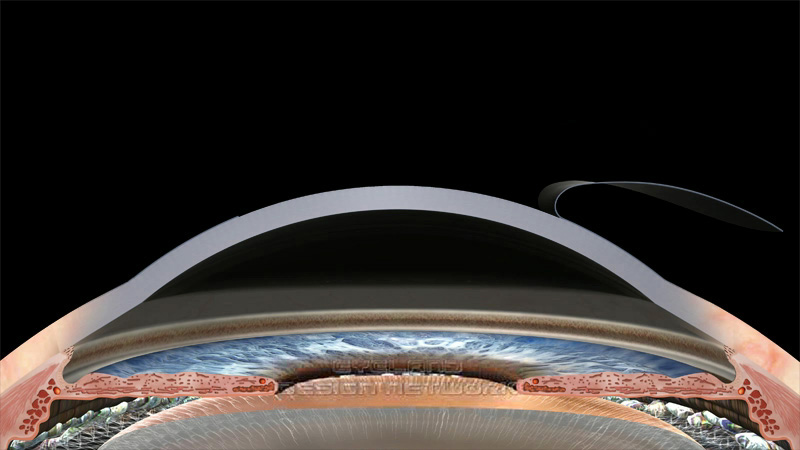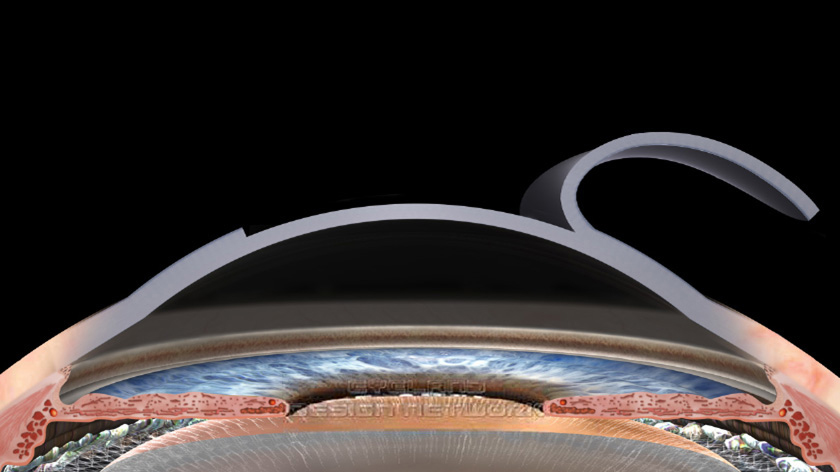Bladeless epi-LASIK
As a highly experienced laser eye surgery specialist, Dr. Lewis believes in using leading-edge technologies and techniques to achieve the finest possible vision correction results. One of the latest laser refractive techniques he offers is Epi-LASIK in Philadelphia. As one of the most highly experienced Epi-LASIK Philadelphia specialists, Dr. Lewis has helped numerous patients achieve freedom from glasses through this procedure. In fact, his reputation for excellent surgical outcomes attracts Epi-LASIK patients from throughout the greater Philadelphia area, including Bucks County, Elkins Park, Phoenixville, Conshohocken and Warminster.
Epi-LASIK has been shown to reduce the incidence and severity of dry eye because fewer corneal nerves are interrupted during the procedure. Contrast sensitivity, vision in low light, and night vision are superior in all advanced surface ablation procedures, particularly Epi-LASIK.
The best candidates for Epi-LASIK are those who can accept a slightly longer visual recovery period in return for enhanced vision, less dry eye and greater corneal strength.
Epi-LASIK is a better option for some patients than any of the flap-based techniques. This determination should be made in consultation with our doctors during your free evaluation.
Epi-LASIK; Advanced Surface Ablation
LewisLASIK introduces Z-LASIK, the most advanced All-Laser LASIK technology. Ziemer delivers greater precision requiring far less energy than other femtosecond lasers.

Understanding the difference between Laser Vision Correction with a corneal flap (LASIK) and Laser Vision Correction without a corneal flap (Epi-LASIK)
All present-day laser vision correction procedures use an excimer laser to reshape your cornea. All excimer lasers, regardless of their manufacturer, output 193 nanometer light for corneal ablation. The unique ability of the excimer laser to reshape corneal tissue is the breakthrough that started modern refractive surgery.
Laser Vision Correction can be divided into two main categories. One is surface corneal ablation and the other is below the corneal flap corneal ablation.
If you are considering Epi-LASIK eye surgery, please contact one of our offices to schedule a one-on-one appointment with the highly experienced Philadelphia Epi-LASIK specialist Dr. James S. Lewis. During your personal consultation, he or she will assess your health and determine if you are a Philadelphia Epi-LASIK candidate or if you could benefit more from some other type of refractive eye surgery.
Laser Vision Correction without a corneal flap (surface ablation).
- Bladeless Epi-LASIK exposes the most superficial layer of your corneal stroma to excimer sculpting. Your reshaped cornea maintains maximal strength and structural integrity. The vast majority of your corneal anatomy remains untouched.
- Older surface ablation techniques like PRK (photorefractive keratoplasty), LASEK (laser assisted epithelial keratomileusis), and transepithelial ablation use less elegant methods to expose the superficial corneal stroma. Most of these methods have fallen out of favor.

Laser Vision Correction with a corneal flap (LASIK).
- Flap-based techniques include standard LASIK, custom LASIK, and so-called “All Laser LASIK”. Regardless of the technique, a corneal flap is created and less of your corneal structure is preserved. The Excimer laser is applied beneath the corneal flap.
- Femtosecond lasers like Intralase™ and Ziemer™ are technically bladeless. However, instead of a scalpel they use a series of multiple microscopic laser pulses to cut a corneal flap. All of these methods, including “All Laser LASIK” are susceptible to flap complications. All flap-based techniques leave you with less corneal resistance to trauma. Our Femtosecond laser, the VisuMax is so precise it minimizes these issues.

The advantages of LASIK over surface ablation are speed of recovery, convenience, and comfort. Our LASIK patients can almost always drive without glasses to their follow-up appointment. LASIK patients can return to full activities, with clear vision, in hours.
The Ziemer Z4 enables near perfect flap positioning, exact control of flap thickness, maximization of the flap diameter, customization of the flap shape, and selection of the hinge location. This enhances safety, maximizes corneal stability, optimizes visual quality, and reduces dry eye.
Over the course of his career, Dr. Lewis has established a reputation as a leading LASIK, Epi-LASIK, and PRK Philadelphia specialist. For patients who wish to reduce their dependence on glasses but cannot undergo corneal surgery or prefer a reversible alternative, Dr. Lewis offers the EVO Visian ICL.
In addition to helping Philadelphia / Bucks County Epi-LASIK patients realize their dreams of clear vision without glasses, Dr. Lewis offers several other advanced refractive procedures. At his state-of-the-art LASIK Philadelphia offices, patients can also receive glaucoma therapy, intraocular lens implants and Visian ICL.
